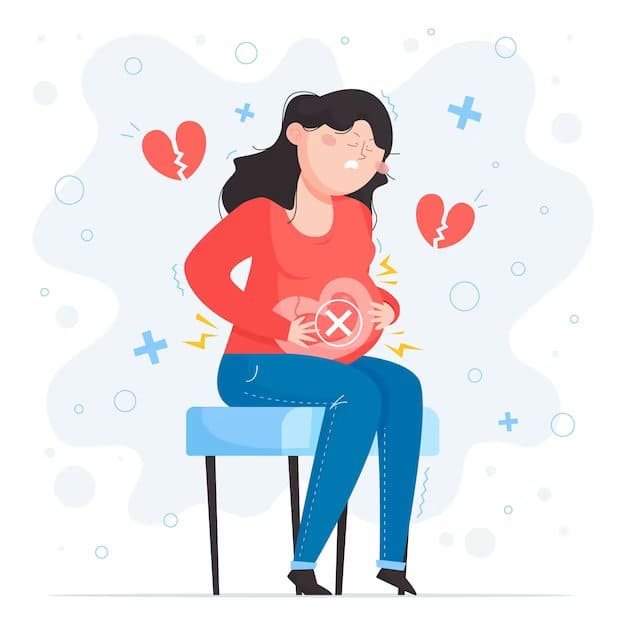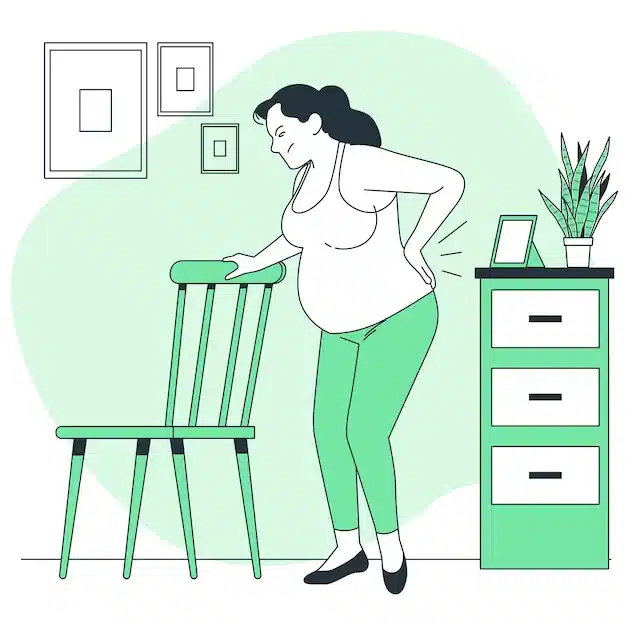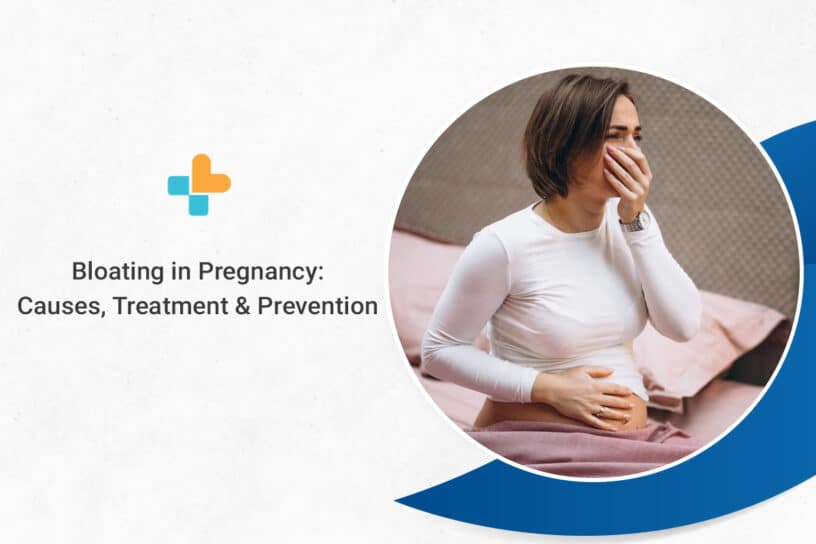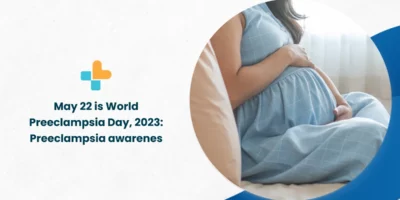Are you experiencing bloating and discomfort during pregnancy? If you answered yes, don’t worry; you’re not alone. Bloating is a fairly common (and unwelcome) symptom for most expectant mothers.
And while it’s not a major cause for concern, knowing its causes, treatments, and prevention can help you have a smoother and more comfortable pregnancy.
In this blog, we’ll look at the causes of bloating during pregnancy, how you can treat it with natural remedies and medication, how to prevent it, and when to see a doctor.
Let’s jump right in.
Is Bloating During Pregnancy Normal?
Yes, bloating during pregnancy is normal. One study showed that ~49% of women reported some form of bloating during their pregnancy.
Bloating during pregnancy is normal and expected, and in most cases, it’s rarely a cause of concern.
Causes
Bloating during pregnancy and bloating, in general, may share some causes. However, there are some pregnancy-specific causes for bloating, such as the following:
- Hormonal changes: Pregnancy hormones tend to relax the womb and digestive muscles and slow digestion. This can lead to constipation and feeling bloated.
- Heightened emotions: Heightened emotions and bodily awareness can make pregnant women feel the sensations of their small intestines more intensely. So, a pregnant woman is more likely to feel the intensity of bloating than someone who’s not pregnant.
- IBS before pregnancy: Having IBS before pregnancy can make bloating worse during pregnancy. IBS is known to cause constipation, diarrhoea, bloating, and abdominal pain.
Treatments
If you suffer from bloating during pregnancy, we highly recommend trying home remedies before going in for any treatment. You can try exercising more regularly, drinking plenty of water, eating wholesome foods, and avoiding foods that cause gas buildup.
One study found that most cases of bloating during pregnancy were treated with dietary changes.
If you find home remedies aren’t relieving your bloating symptoms, you can opt for constipation relief medication or, in more severe cases, prescribed antibiotics.
Prevention
You can prevent bloating during pregnancy by taking the following precautions:
- Exercise regularly.
- Drink 8–10 glasses of water a day.
- Eat smaller, more frequent meals.
- Eat fibre-rich foods, vegetables, fresh fruits, whole grains, and other wholesome foods.
- Don’t eat right before bedtime.
- Avoid caffeine and alcohol.
- Avoid high-fat foods.
- Eat fewer foods that cause gas, like cruciferous vegetables (like cabbage, kale, cauliflower, and broccoli), beans, and legumes.
- Drink water between meals instead of during meals.
When to See a Doctor
Bloating during pregnancy is normal and should be expected. In most cases, it’s harmless.
However, it could also signify certain health issues in rare cases.
You should see a doctor if your bloating is accompanied by:
- Weight loss
- Pain in the upper-right abdomen
- Nausea
- Diarrhoea
- Symptoms of anaemia, like light-headedness and fatigue

Treat Pregnancy Bloating Safely at Ayu Health
Bloating during pregnancy is normal due to hormonal changes. However, we still recommend playing it safe and visiting a doctor to ensure there aren’t any underlying health concerns.
If you’re pregnant and suffering from bloating issues, we invite you to book an appointment with our obstetricians at Ayu Health.

With doctors with 15+ years of medical experience in 50+ specialities and who come from well-known institutions, you can trust our specialists at Ayu Health Network of Hospitals to put you on the road to good health and recovery.
Visit our website today to learn more.
Also read: How to Check Pregnancy at Home
FAQs
How Do You Relieve Bloating During Pregnancy?
You can relieve bloating during pregnancy by drinking eight glasses of water a day, increasing fibre intake, exercising, taking medication for constipation, and, in some cases, taking antibiotics.
What Does Pregnancy Bloating Feel Like?
According to many pregnant women, bloating during pregnancy feels like a balloon ready to pop. The belly might feel tighter, harder, and tenser than usual when pressed. The bloating is often accompanied by gas, constipation, and other symptoms.
What Week Does Bloating Start in Pregnancy?
Bloating starts in the first trimester (12 weeks after conception), and it may get worse during the third trimester (29 weeks after conception). As the foetus grows bigger, it takes up more space and adds pressure on the surrounding organs.
Why is a Pregnant Woman Bloated?
A pregnant woman can get bloated due to hormonal changes that slow digestion and lead to a build-up of gas. Additionally, the growing uterus during pregnancy applies pressure to the digestive tract, which further leads to bloating.
What Foods Cause Bloating in Pregnancy?
Foods like beans, lentils, onions, garlic, wheat, dairy, carbonated drinks, cruciferous vegetables (like cauliflower, kale, cabbage, etc.), artificial sweeteners, apples, pears, beer, and fatty foods can cause bloating.
What Foods Cause Bloating?
Foods like beans, lentils, onions, garlic, wheat, dairy, carbonated drinks, cruciferous vegetables (like cauliflower, kale, cabbage, etc.), artificial sweeteners, apples, pears, beer, and fatty foods can cause bloating.
Our Hospital Locations
Gynaecology Surgery Hospitals in Chandigarh | Gynaecology Surgery Hospitals in Bangalore | Gynaecology Surgery Hospitals in Jaipur | Gynaecology Surgery Hospitals in NCR | Gynaecology Surgery Hospitals in Hyderabad
Our Doctors
Gynaecology Surgery Doctors in Chandigarh | Gynaecology Surgery Doctors in Bangalore | Gynaecology Surgery Doctors in Jaipur | Gynaecology Surgery Doctors in NCR | Gynaecology Surgery Doctors in Hyderabad
About the Author





